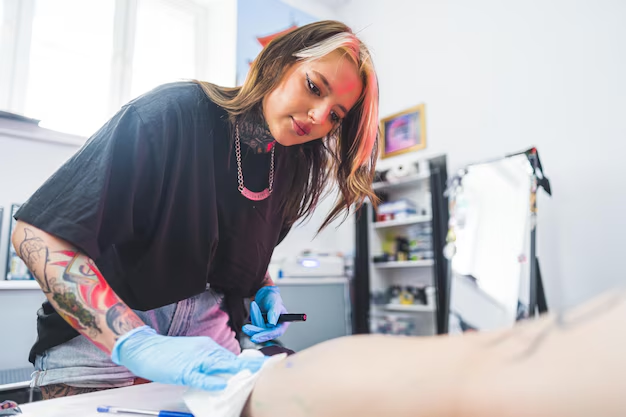Your Guide to Can Diabetics Get a Tattoo
What You Get:
Free Guide
Free, helpful information about Diabetes FAQ and related Can Diabetics Get a Tattoo topics.
Helpful Information
Get clear and easy-to-understand details about Can Diabetics Get a Tattoo topics and resources.
Personalized Offers
Answer a few optional questions to receive offers or information related to Diabetes FAQ. The survey is optional and not required to access your free guide.
Is It Safe for Diabetics to Get a Tattoo? Here’s What You Need to Know
For individuals with diabetes, the prospect of getting a tattoo often comes with a set of unique concerns. The desire to express oneself through body art needs to be balanced with health considerations. So, can diabetics get a tattoo? The short answer is yes, but with added care and precautions.
Health Considerations for Diabetics
Healing Challenges: Diabetes can affect the body’s natural healing process. High blood sugar levels can lead to slower wound healing, increasing the risk of infection—a critical factor to consider when getting a tattoo. Contesting tattoo placement on areas with poor blood supply, such as the feet and legs, can exacerbate this issue.
Infection Risk: Diabetics are more susceptible to infections, which makes choosing a reputable tattoo artist and a sterile environment all the more important. Always ensure that the tattoo studio follows strict hygiene practices, using new, sterile needles and gloves.
Consultation with Healthcare Providers: It’s advisable for individuals with diabetes to discuss their tattoo plans with their healthcare provider. This consultation can provide personalized advice, considering each person's health status and blood sugar control.
Preparation and Aftercare
To minimize risks, it's imperative to take proactive measures before and after getting tattooed:
- Blood Sugar Control: Maintain good blood sugar levels both weeks before and after the procedure. Stable blood sugar levels can significantly aid in faster healing and reduce infection risk.
- Choose the Right Area: Opt for areas of the body where circulation is good and where the tattoo will experience minimal friction or wear.
- Follow Aftercare Instructions: Adhering to the tattoo artist’s aftercare instructions is crucial. Keeping the tattooed area clean and applying recommended ointments can prevent complications.
Financial Considerations and Support
While the focus might initially be on health, the financial aspect of body art is another layer to consider. Tattoos can be expensive, and individuals with diabetes might find themselves prioritizing this expense with other financial obligations—or looking for ways to secure funds for their body art journey.
Exploring Financial Assistance and Support
For diabetics, especially those needing to balance medical expenses, exploring various financial assistance options is beneficial not just for healthcare but for discretionary expenses like tattoos. Here are some resources and strategies:
Government Aid Programs: Many are unaware that aid programs can offset healthcare costs, allowing more freedom for personal expenses.
Credit Solutions: Look into credit cards designed for medical expenses, as these may offer benefits like lower interest rates or cashback on healthcare spending.
Educational Grants: If you’re a student or plan to return to school, educational grants can ease tuition burdens, freeing up personal funds for tattoos or other interests.
In the fast-paced world we live in, financial support options can empower more personal freedom, allowing for creative expression without compromising essential needs.
Useful Resources to Explore 💡
- State and Federal Assistance Programs: Check for eligibility in healthcare cost aids.
- Specialized Credit Cards: Explore those designed for medical or discretionary expenses.
- Scholarships and Grants: Great for students balancing educational and personal pursuits.
Safeguarding health should remain a priority for diabetics considering tattoos. By taking proper precautions and making informed financial choices, expressing oneself through tattoos can be both safe and economically feasible.
What You Get:
Free Diabetes FAQ Guide
Free, helpful information about Can Diabetics Get a Tattoo and related resources.

Helpful Information
Get clear, easy-to-understand details about Can Diabetics Get a Tattoo topics.

Optional Personalized Offers
Answer a few optional questions to see offers or information related to Diabetes FAQ. Participation is not required to get your free guide.


